Burnaby's windfall in tax revenue from oil-tank farm highlights Saint John's struggles
The expansion of a crude oil and refined petroleum tank farm and marine terminal in Burnaby, B.C., that is being promoted to residents on the promise of $13 million in annual municipal property taxes highlights major differences in how Canadian cities benefit from their oil industry infrastructure.
In Saint John, a similar sized crude oil facility at Canaport pays less than $1 million in annual municipal property tax, one of the reasons the city wants more say over how local properties are assessed and taxed.
"Why aren't we seeing the same thing here? Why such a difference," said former Saint John city councillor and MLA Gerry Lowe, a long time advocate of higher industrial property taxes
Although it is on the other side of the country, the expansion of the marine oil terminal in British Columbia has a connection to New Brunswick
Earlier this summer a tanker at the existing Burnaby oil terminal loaded up on western Canadian crude and sailed 11,900 kilometres through the Panama Canal to Saint John, where it delivered the cargo to Irving Oil.
It was heralded by the oil industry as an important national moment and the expansion of the Burnaby facility has been promoted as a feasible way to move more western Canadian oil to New Brunswick.
"From the BC Coast to the Bay of Fundy, our shipment of western Canadian crude has arrived in Saint John, NB and unloaded at Irving Canaport," Irving Oil tweeted in July about the Burnaby shipment, "We're thrilled to celebrate this milestone as we work to bring more Canadian energy home to #NB."
Trans Mountain
The crude oil marine terminal in Burnaby is owned by the federal crown corporation Trans Mountain and includes a 76 hectare onshore tank farm with a 1.7 million barrel capacity. A coastal loading facility for tankers on Burrard Inlet, about three kilometres away is connected to the tank farm by pipeline.
Trans Mountain is building an expanded interprovincial pipeline to more than double the amount of crude oil it transports from Alberta to British Columbia and its plan is to increase the Burnaby tank farm to 5.8 million barrels of storage by 2022 and rebuild the marine terminal to handle multiple ships at a time.
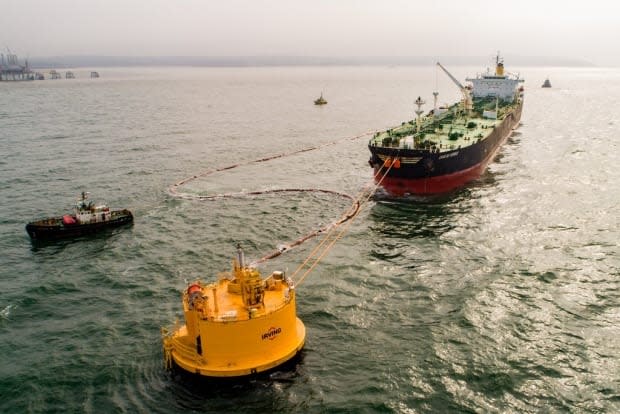
The two Burnaby facilities are already valued for property taxes by BC Assessment to be worth $259.5 million but that will grow substantially following the redevelopment, according to the company
"Trans Mountain's major storage, distribution and marine shipping facilities are located in Burnaby, paying the city more than $7 million a year in property taxes," it explains in materials promoting the project.
"Expansion of Trans Mountain facilities in Burnaby would boost Trans Mountain's property taxes to $13 million per year."
Room for change
Lowe believes Canadian cities like Burnaby that receive substantially more revenue than Saint John from similar industrial operations prove there is room for taxation changes in New Brunswick
"Why can't we even be somewhere in the same vicinity for the money that they're getting out there? That would make (Saint John) completely prime to live in. It would make it so much more to want to live in the city when industry is paying that kind of taxes," said Lowe
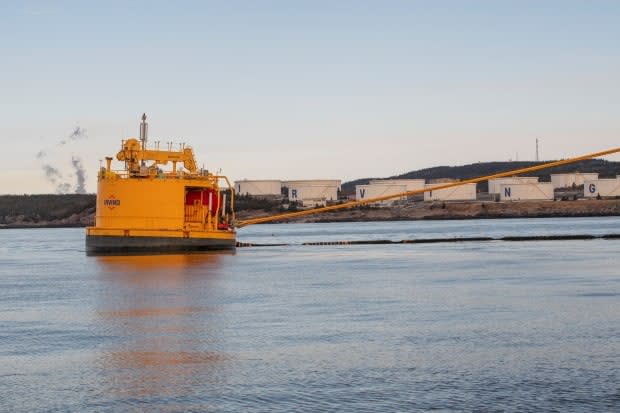
Irving Oil's crude oil marine terminal at Canaport is slightly larger than an expanded Burnaby facility will be. According to property records it sits on 132 hectares and according to a company description its tanks contain "more than six million barrels of storage capacity."
Canaport also occupies 680 hectares of ocean floor around the onshore facility where tankers attach to a company buoy to unload their cargos through an underwater pipeline.
However, despite size similarities to the Burnaby terminal, Canaport is valued for taxes by Service New Brunswick to be worth just $29.5 million and based on that assessment pays Saint John $790,000 in municipal property tax.
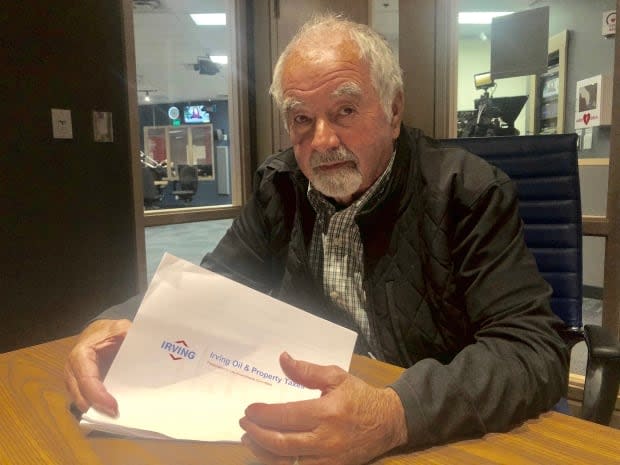
Given the "over 100 million barrels" of crude Irving Oil claims Canaport receives in some years, the property tax bill amounts to less than one cent per barrel. The crude terminal also has an exemption from paying any provincial property tax.
Valuation unchanged
Service New Brunswick did not respond to a request for information about its valuation of the Canaport crude oil terminal, which it has not changed in seven years. But it is difficult to find an ocean side oil facility that large which is assessed for less, at least in Canada.
A crude oil marine terminal serving offshore suppliers in Arnold's Cove, N.L., is assessed for taxes by the province's Municipal Assessment Agency to be worth $79.2 million, more than double Canaport's assessment, even though at 3 million barrels, it has half the tank capacity.
Saint John has complained regularly about Service New Brunswick's assessment of property in the city, but there are no mechanisms available to municipalities to challenge valuations.
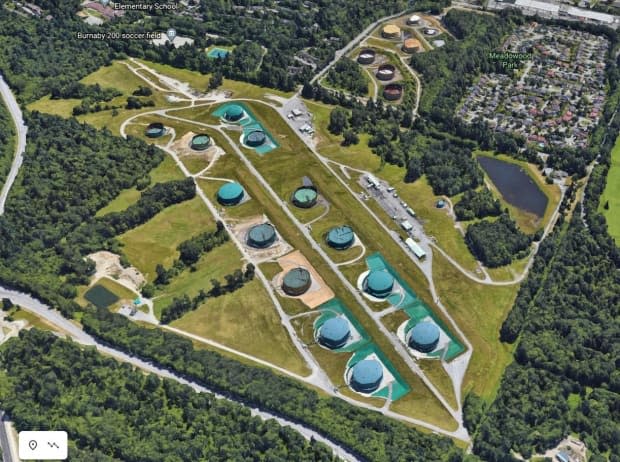
Municipalities are also forbidden in New Brunswick from setting different tax rates for different types of properties, leaving Saint John powerless to raise property taxes on a facility like Canaport unless it raises rates on homeowners by the same percentage at the same time.
Last month Saint John Mayor Don Darling said he hoped the province, which has committed itself to municipal reform over the next four years, will give cities more power over local taxation.
"If we were able to get a tax system that was very similar to other provinces, then I think that the city would thrive," said Darling.
"We're simply asking for a change to these archaic, out-of-date policies and a chance to thrive and grow."
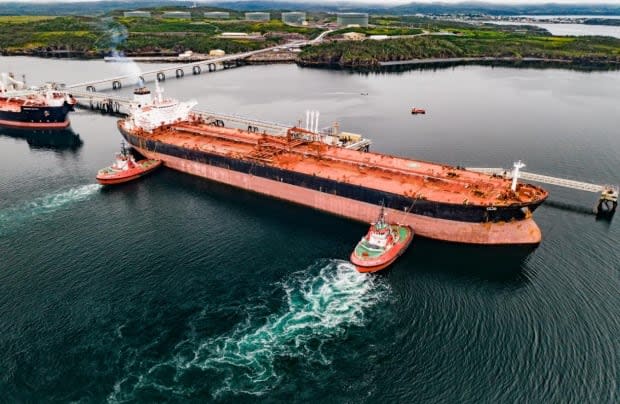
Irving Oil did not respond to an email asking for comment on Canaport's assessment, but last year company executive Andrew Carson told a committee of MLAs that included Lowe it pays substantial amounts of property and other taxes in the province already.
"New Brunswick is not a low cost jurisdiction," he said.
Lowe says if oil companies elsewhere can afford to pay substantial property taxes on infrastructure that handles billions of dollars in petroleum products annually, he does not see why it would be different in New Brunswick.
"If the people that own these things are making many millions and billions of dollars, it's quite obvious that they can pay more in taxes. It's just common sense," he said.


